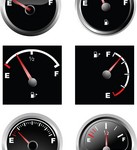 Credit score or FICO in the dumps? Need to pick it up fast? Buying a home? Applying for a job? Not to worry; here is some advice on how to improve your credit score.
Credit score or FICO in the dumps? Need to pick it up fast? Buying a home? Applying for a job? Not to worry; here is some advice on how to improve your credit score.
Before I get to specifics, it’s important for you to know that your credit score is important not only if you are applying for credit, but also if you are applying for a job. Many companies will review your credit score as part of your employment application because they believe that if you have a solid credit score you may also be more responsible than a person that has a lower score.
Your credit report summarizes all of your financial history for the last seven years. The exceptions to the seven year rule includes some good credit information (like closing an account that was in good standing) and Chapter 7 bankruptcy information – both of which stay on your history for ten years. You should also learn more about What’s In A Credit Report.
So here are a dozen specific steps that you should take to improve your credit score:
1. Pay off your credit card balance. If this is at all possible, this is the first, last and best way to boost your score.
2. Cancel some of your credit cards. If you have too many credit cards, then it appears as if you have too much credit. Cancel some to reduce your risk to creditors.
3. Stop using your credit card. The more debt you have, the worse your score. And if you’ve maxed out your credit, then your score can plummet fast. Part of your FICO is determined by how much debt you have in proportion to how much credit you have. If you have $10,000 in credit and you’ve used $9,500, your ratio is pretty poor. Not using your credit card will at least slow down your FICO’s decline.
4. Establish a credit line. If you don’t have a credit card or your debt to credit ratio is low, you can get another credit card to adjust the ratio. This can result in a boost in your credit score but tread carefully here. If you incur more debt, your score will go down.
5. Get a copy of your credit report. You’re entitled to a free one from each of the three reporting agencies each year. Check your report over carefully. If there are any mistakes, make sure to follow up with the creditor and your reporting agency to get the mistakes removed from your report. One small mistake can have a drastic impact on your score.
6. Pay any overdue balances. Your credit payment history makes up more than a third of your credit score. If you’re overdue on any accounts this can have a significant impact on your credit score.
7. Keep accounts with balances open. Closing the account may feel like a good idea, but it may be better just to cut up the credit card. Make sure closing the account won’t have a negative impact on your credit score. If by closing the account you significantly affect your debt to credit ratio, it’s better to keep it open.
8. Seek credit counseling help. Counselors can make calls on your behalf to lower your payments, negotiate better interest rates and help you improve your score quickly.
9. Use your cards wisely. Generally, you can increase your credit score by limiting your charges to 30% or less of a card’s limit. For example, if you have a $6,000 limit then don’t charge more than $2,000.
10. Check your credit card limits. When you review your credit report, make sure the limits on your cards are accurately reflected. If not, call your creditor and have them update your information.
11. Use your old cards. The longer you have a credit history, the better your score. If you’re going to use a credit card, use your oldest one.
12. Contact creditors and see if you can negotiate lower rates and a payment plan. Or request a credit limit increase if you’re looking to adjust your debt to credit ratio. You have power as a consumer. Use it to help yourself.
Boosting your credit score even a few points can mean the difference between getting approved for a mortgage or car loan. It can affect the interest rate you’re charged on loans and other credit cards. And your credit score can impact your ability to get a job. Take a few steps to boost your credit score – it makes a difference.
 Credit score or FICO in the dumps? Need to pick it up fast? Buying a home? Applying for a job? Not to worry; here is some advice on how to improve your credit score.
Credit score or FICO in the dumps? Need to pick it up fast? Buying a home? Applying for a job? Not to worry; here is some advice on how to improve your credit score.

